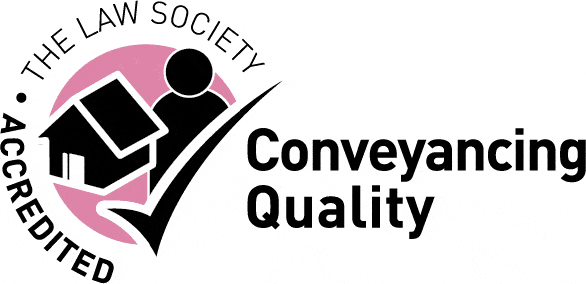There are differences between buying a pre-owned and new build property. However, no matter when you buy a new home or even a property for investment, there will always be some challenges. It is how experienced your conveyancing solicitor is in handling these obstacles and how they are communicated to the various parties. This is what differentiates the specialist conveyancing solicitors from that of a ‘jack of all trades’ legal practice.
Even the smoothest property transactions require careful compliance with the conveyancing process whereby property ownership is legally transferred from one owner to another. At Harrison’s Solicitors, our property law experts make conveyancing transactions easy and hassle-free. They are very experienced and knowledgeable and are there to make sure your needs as a buyer or seller are fully met at every step of the conveyancing process. Thorough and diligent conveyancing conducted by trained and qualified professionals is necessary for any property purchase. However, it’s essential to remember additional issues are involved with buying a new build property.
Choosing your conveyancing solicitor
Did you know that all licensed solicitors are qualified to carry out conveyancing (buying and selling a property)? This is by no means a guarantee that this is an area they are experienced and specialists in. At Harrison’s, all conveyancing transactions are handled by qualified solicitors, legal executives or licensed conveyancers accredited under the Law Society Conveyancing Scheme. We recommend that you choose your conveyancing solicitor carefully. Look at the years they have been trading, look at past clients’ reviews and see if they offer a no-fee policy for failed property transactions.
What’s typically involved in the conveyancing process?
- Checking contracts for accuracy and issues
- Clarifying property queries
- Working with the Land Registry
- Acquiring your signed mortgage deed
- Ensuring that a contract deposit is in place
- Agreeing on a completion date
- Making sure any mortgage conditions have been adhered to
- Checking how many days’ notice the lender needs to release funds
- Ensuring your buildings insurance is placed at risk from the exchange of contracts
- Dealing with any specific issues relating to a leasehold property
- Obtaining your authority as a buyer to set completion and exchange of contracts date
- Dealing with any queries arising from a chain in the buying process
- The signing of the contract
The above are important issues for all types of properties. However, if you are considering buying an old or listed building, you must engage the services of an experienced conveyancer you trust to do a comprehensive job. We will take each step with time and attention throughout the conveyancing process. At Harrison’s Solicitors, we will move forward expediently to ensure no unnecessary delays. We are also available to discuss the process with you whenever needed.
Pre-owned homes
After having an offer for the property you want to be accepted, conveyancing is the legal part of the process. This is where you have to sit tight and wait for the legalities to be worked through before contracts are exchanged. Whilst this process can appear arduous and laborious, ensuring everything is in place before the sale is legally binding is essential. At Harrison’s Solicitors, we leave no stone unturned when representing you for your conveyancing transaction. Individuals face challenges when buying older or pre-owned properties are often fewer than those associated with new build property purchases.
As the property is already built, there is a strong chance that the property is already occupied. In our opinion, one of the most important considerations when buying a pre-owned property is the building survey to undertake for prospective buyers of properties. There are three main types of surveys to consider:
- A valuation survey instructed under the guidance of the mortgage company (the lender of the funds required to make the property purchase)
- A homebuyers report
- A complete and comprehensive structural survey
Before purchasing a property, it is essential to investigate its condition beyond just walking around and observing fully. Many facts about the property’s condition can’t be seen. The mortgage survey examines the state of the property. This type of survey can reveal much information on the property’s condition and potential short- and long-term issues. These surveys highlight differing levels of information about the property to help the buyer and lender make informed decisions. By selecting the most appropriate property survey, many potential property buying problems can be avoided.
Why is the survey a benefit to you?
The mortgage valuation is a benefit to the lender of the funds, whereas the survey is for the use of the purchaser of the property. At Harrison’s Solicitors, we always advise obtaining a complete structural survey on pre-owned or older properties. This type of report is beneficial as it provides an in-depth analysis of the property’s overall condition, including defects, repairs and maintenance issues. Buying a house is one of the most significant commitments you will make, so you must avoid unnecessary costs that you are fully aware of any repairs and maintenance issues, however large or small.
When it comes to newer property, a valuation survey may suffice. However, with older properties, for example, it may be prudent to complete a full structural survey for those over fifty years old. This will help identify potential concerns that may be hiding beneath the surface. At this stage, you could either renegotiate the price to allow the work to be completed or even ask the seller to do this before you buy the property. In some instances, however, the property’s sale price may already reflect the work that needs to be completed.
Choosing a conveyancing solicitor you feel comfortable working with for your house purchase or sale would be best. They act as a trusted intermediary between you, the seller and your mortgage lender.
New build property transactions
 The process is different when you are buying directly from a developer. There is usually a limited time to agree and exchange contracts. The developer will reserve the property if you instruct a solicitor and arrange for a mortgage for a non-refundable holding deposit. This is often set to only four weeks. Each property builder has a particular deadline for property contract exchange. If you do not achieve this exchange deadline, you may lose the fees paid to reserve the property and the property itself. The reservation period’s flexibility level is linked to the buoyancy of the housing market in your buying area. At Harrison’s, our experience is to work to deadlines when they are set to avoid penalties.
The process is different when you are buying directly from a developer. There is usually a limited time to agree and exchange contracts. The developer will reserve the property if you instruct a solicitor and arrange for a mortgage for a non-refundable holding deposit. This is often set to only four weeks. Each property builder has a particular deadline for property contract exchange. If you do not achieve this exchange deadline, you may lose the fees paid to reserve the property and the property itself. The reservation period’s flexibility level is linked to the buoyancy of the housing market in your buying area. At Harrison’s, our experience is to work to deadlines when they are set to avoid penalties.
Many new property developers are expected to firmly push their solicitors onto prospective buyers for the conveyancing transaction. One of the most common reasons for this is the eagerness to get the property sale through as quickly as possible. Using their selected conveyancing firm will help them achieve this goal. Being represented by a conveyancing solicitor primarily acting in the developer’s interests is never a solid position to be in as a buyer. At Harrison’s Solicitors, our specialist new build conveyancers use their knowledge and expertise to act in the interests of you and you alone through the complex conveyancing process for a new build home.
These added issues can include the following:
- When buying a new building property, it may not have been entirely built. This can be very complex as you often commit to purchasing a new build property based on what you have seen in the show home.
- Checking and validating the National House Building Council (NHBC) insurance to ensure you are covered against potential future issues, including structural damage. This will also be a condition of getting your mortgage.
- Reporting on Local Authority searches and other relevant checks
- Checking the road and drainage adoption process has been correctly followed to prevent future problems
- Preparing and applying to the Land Registry
- You are completing the conveyancing process to the agreed-upon deadlines and safeguarding your transaction from potential penalties.
- Registering ownership and informing the mortgage company of this
- Registering ownership with NHBC and sending you the certificate
Snagging lists and Surveys
When buying a new property, it is likely not built. Therefore it is essential to ensure that you have an inspection of the property to highlight defects and problems with the property. In our experience, paying an experienced surveyor to complete a snagging list is essential. A recent new home review survey highlighted that 90% of new build property buyers had experienced snags and defects on their property purchase. Furthermore, they were also extremely unhappy with the service provided by some developers to rectify the snags or defects.
A snagging survey before the property completion can outline the issues before you complete your property purchase and pick up the keys. An excellent snagging survey will include a schedule of work to be met with photographic / video evidence. This can be shared with the property developers so that these issues can be rectified satisfactorily or even be used to renegotiate with the developer.
Due to the uncertainties with the weather, availability of building supplies and other problems with the building of properties, there are often delays in the completion of a new home. It is essential that mortgage offers can be extended due to the delays above. The developer will give written notice when the property is built and ready. The conveyancing transaction must be completed by the written date notice issued, usually as little as ten working days.
At Harrison’s Solicitors, we use our expertise to complete property transactions to the tight deadlines issued by the house builders whilst ensuring the appropriate final building inspections have been carried out and snagging lists produced.
Part Exchange and Assisted Move
Part exchange and assisted move schemes offered by developers are often marketed as an easy and hassle-free option for buyers looking to move into their dream property. Nonetheless, as with all property transactions, this process has potential complications. If you are considering a scheme of this kind, the conveyancing team at Harrison’s Solicitors can give you specialist advice and support.
If you are looking for Conveyancing Solicitors in Fareham and surrounding areas, contact Harrisons Solicitors today!

